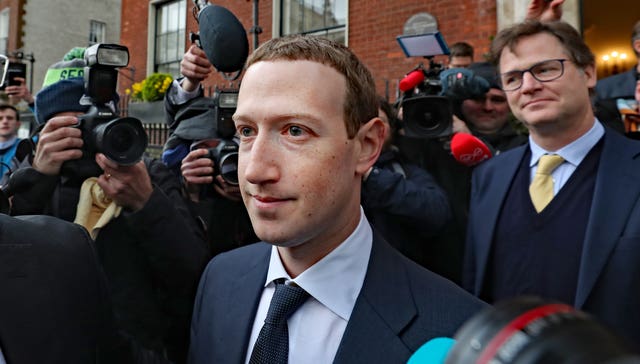Social media companies ‘failing to act on 90% of Covid-19 misinformation’
Only one in 10 reports of coronavirus misinformation to Facebook, Twitter and Instagram are being dealt with, according to a new study.

Hundreds of posts spreading misinformation about Covid-19 are being left online despite the “dangerous” material being reported to social media giants.
A group of young volunteers scoured social media for coronavirus misinformation between April 20 and May 26 but, after reporting 649 posts that experts believe contravene the platforms’ own standards, fewer than one in 10 were acted upon.
The findings are likely to be a talking point when social media bosses, including from Twitter and Facebook, face questioning by MPs on the Commons digital, culture, media and sport sub-committee on Thursday.
Labour said the report exposed the “pitiful steps” social media companies were taking to tackle falsehoods about coronavirus on its websites.
The Will To Act report, a combined effort published on Thursday by the Center for Countering Digital Hate (CCDH) and youth action group Restless Development, found that 90.6% of the misinformation reported remained visible online afterwards without any warnings attached.
Of the 60-plus posts where action was taken, at least 40 were removed, six were flagged as false information and 12 reports led to accounts being closed down.
The misinformation flagged up by the 10 volunteers – hailing from the UK, Ireland and Romania – included examples of conspiracy theories being promoted about 5G mobile technology masts causing Covid-19.
Others were spreading false cures, including that sufferers can get rid of coronavirus by drinking aspirin dissolved in hot water with honey or by taking zinc and vitamin C and D supplements.
They also discovered posts suggesting wearing a face mask can cause cancer, while some social media users pushed anti-vaccination propaganda related to coronavirus.
Twitter was deemed to be the least responsive during the study, with only 3% of the 179 reported posts acted upon.
Facebook removed 10% of the 334 posts reported and flagged another 2% as false to users, while Instagram – which is owned by Facebook – acted on 10% of the 135 complaints raised.

The lack of action flies in the face of promises made by bosses of the social media platforms, according to CCDH.
Chief executive Imran Ahmed said: “Social media giants are shirking their responsibility to stop dangerous misinformation spreading.
“Their systems for reporting misinformation and dealing with it are simply not fit for purpose.
“Social media giants have claimed many times that they are taking Covid-related misinformation seriously, but this new research shows that even when they are handed the posts promoting misinformation, they fail to take action.”
Mr Ahmed argued that if social media companies failed to act on misinformation then politicians should “hold them to account by imposing financial sanctions for the costs to the NHS, fire service, police and all of society that misinformation causes”, while also bringing in greater regulation.
Rosanne Palmer-White, director of Restless Development UK, said: “Young people are doing their bit to stop the spread of misinformation about Covid-19 online, but social media companies are letting them and all of us down.”
Jo Stevens, Labour’s shadow culture secretary, said: “This report exposes yet again the reality of what the global tech companies promise on removing harmful content and the pitiful steps they actually take in practice.
“Combating the impact of the global Covid-19 crisis is difficult enough, without the uncontrolled spread of extremely harmful content on social media platforms.”
Facebook founder Mark Zuckerberg has previously defended Facebook’s record of combating misinformation on the social network during the coronavirus outbreak, claiming staff were removing posts promoting false cures and 5G theories when interviewed on BBC Radio 4’s Today programme last month.
Since the coronavirus outbreak, a number of online services have introduced tools to try and direct people to accurate information from official health authorities.
Facebook, Twitter and Google all show links to health organisations at the top of search results linked to the virus, while WhatsApp has launched several chatbot services which can directly provide users with up-to-date health advice.





